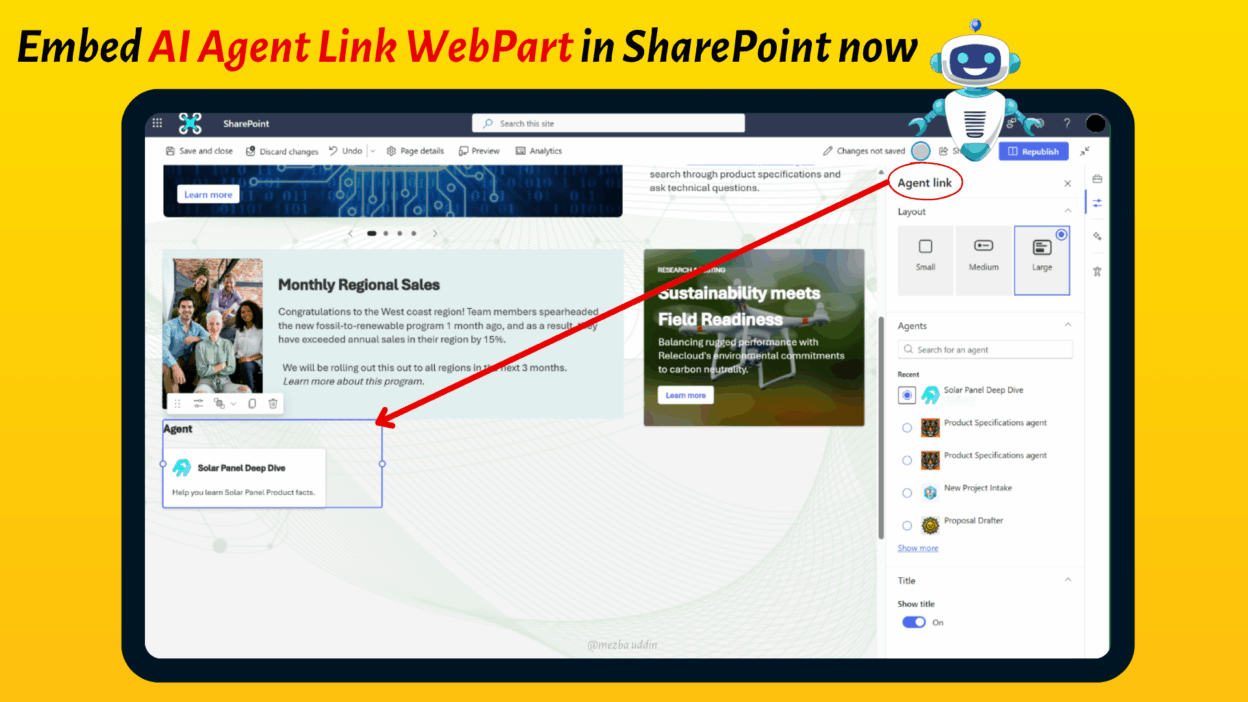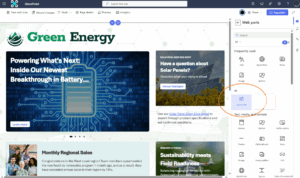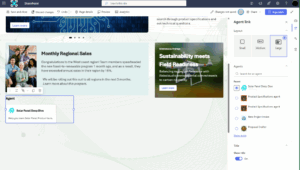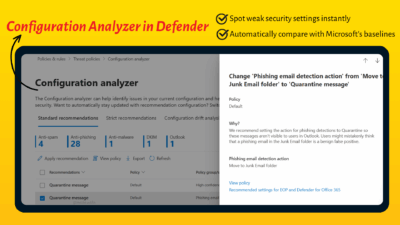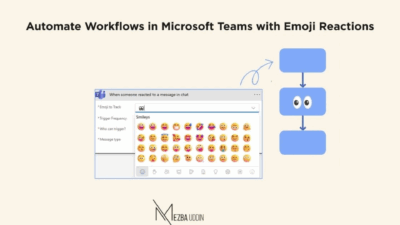If you’ve ever been stuck on a SharePoint page, wondering where to keep/find the right help or guidance, you’re going to like this one. Soon, you won’t need to jump between tabs to find the help, it will be right there on the page.
Microsoft is introducing a new Agent Link Web Part, rolling out worldwide in August 2025.
It lets you place a clickable link to an AI agent directly on your SharePoint pages. When you click it, the agent opens in a side panel, ready to give you contextual assistance without pulling you away from your work.
For organizations using Microsoft 365 Copilot, this is going to make AI support much easier to find and use.
Agent Link WebPart in SharePoint Online
The Agent Link Web Part is a brand-new addition to SharePoint’s page-building toolbox.
It is a lightweight, flexible way for SharePoint site owners to embed a clickable link to an AI agent directly on any page. When clicked, the agent launches in the sidecar experience (see the image for an actual example), a pane that opens alongside your current content, so users can interact with AI without navigating away.
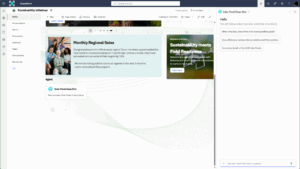
How to Use the Agent Link WebPart in SharePoint Online
Once available, you’ll find the Agent Link WebPart in the AI category of the toolbox, just scroll or search for it. Only site owners or admins can set it up, and it’s quick to configure.
1. Open the Web Part Toolbox → Go to the new AI category.
2. Select “Agent Link” → Drag and drop it onto your page.
3. Link an Agent → Either search for one or pick from your recently used agents.
4. Customize the Look → Choose between small, medium, or large link sizes; optionally show or hide a title.
5. Publish the page then. From there, your visitors can click the link and instantly interact with the agent in the sidecar.
Benefits of AI Agent Web Part:
The Agent Link Web Part tackles a familiar problem, making AI help easy to find right where people are working.
Instead of relying on employees to remember to open Copilot or switch to another interface, you can place the link exactly where support is needed—on a policy page, a how-to guide, or a project site. The result is:
- Contextual Help: Users can ask questions, get explanations, and access relevant content without leaving the page they’re working on.
- Improved Discoverability: AI agents are no longer buried in menus, they’re right where the work happens.
How Site Owners Can Prepare for the New AI Agent Link Web Part
The new Agent Link Web Part is coming to SharePoint in August 2025, and site owners or content authors can take a few simple steps to make the most of it.
Preparation Tips:
- Identify key pages where AI-powered, in-context help would add value—such as policy pages, how-to guides, or project hubs.
- Plan placement of the Agent Link Web Part so it’s visible where users need it most.
- Verify linked agents are published, tested, and accessible to your audience.
- Educate your users on where to find these links and how to use them effectively.
Note:
- If a user doesn’t have the right license (Microsoft 365 Copilot or the organization’s PAYG meter enabled), they’ll see a clear message saying they don’t have access.
- This web part isn’t supported in mobile or email views.
- Access is controlled through Microsoft Entra ID group membership and agent publishing permissions.
Like any AI-powered feature, the Agent Link Web Part comes with compliance points to keep in mind:
- Stores new customer data: Agent interactions may generate contextual data that’s temporarily stored in the sidecar.
- Processes existing data: Agents can access SharePoint content to provide contextual assistance.
- Introduces AI/ML capabilities: Enables real-time interaction with AI agents within your SharePoint site.
- Supports direct user interaction: Users can engage with generative AI without leaving the page.
- Includes admin controls: Admins manage agent publishing and access through SharePoint and Microsoft Entra ID.
A Simple Upgrade with Big Impact
The Agent Link Web Part may be a small addition to SharePoint, but it delivers a big boost in how users discover and access AI help. By placing intelligent assistance right where it’s needed, organizations can streamline workflows, cut down on distractions, and help users get answers faster.
If you’re already using Microsoft 365 Copilot or building custom AI agents for SharePoint, this feature will help you surface them exactly when and where they can have the most impact.

